Cancer
Latest

Joe Biden implores SXSW crowd to use its talents to fight cancer
Like countless others, former Vice President Joe Biden has experienced the horrors of cancer up close. In 2015, his son Beau died at the age of 46 after a battle with brain cancer, a tragedy that inspired the vice president to spend much of his last year in office working on a "cancer moonshot" -- an initiative that helped pass a $6.3 billion research bill at the end of last year. At SXSW 2017 yesterday, Biden told a packed audience how his son's death kept him from running for president but spurred him into intense action that will continue in his private life. And he also implored the audience to use their talents to help make "gigantic progress" in the ongoing battle to detect, treat and prevent cancer.

Watson-based cancer project paused after running aground
It's tempting to treat IBM's Watson as a cure-all: just throw some cognitive computing at the problem and you'll make everything better. That can only happen if it's well-implemented, however, and we've just seen what happens when things go awry. The University of Texas' MD Anderson Cancer Center has put its highly-touted Watson project (the Oncology Expert Advisor) on hold after an audit discovered both spending issues and an unfocused strategy that didn't meet goals.
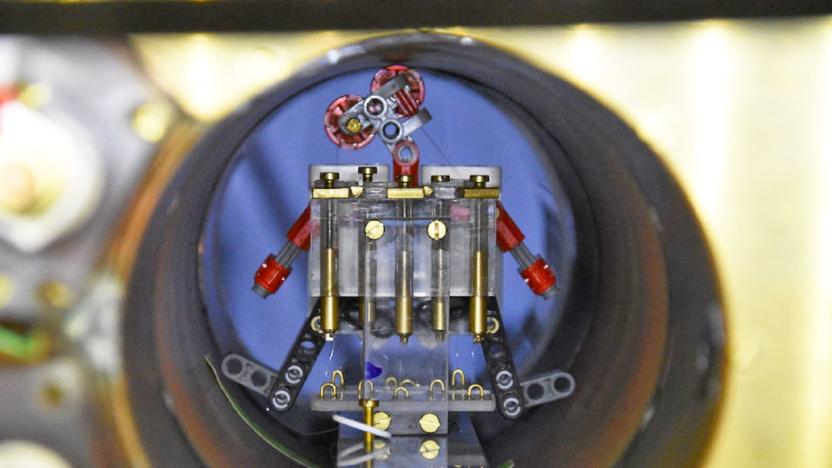
Scientists are building an army of tiny cancer-fighting robots
Scientists have worked for years to incorporate robotics into delicate medical procedures. They've given us tiny devices that can inject drugs into a person's eye or bend to operate on hard-to-reach areas. Now, they've come up with a way to potentially fight cancer using a magnetized swarm of microscopic robots.

AI is nearly as good as humans at identifying skin cancer
If you're worried about the possibility of skin cancer, you might not have to depend solely on the keen eye of a dermatologist to spot signs of trouble. Stanford researchers (including tech luminary Sebastian Thrun) have discovered that a deep learning algorithm is about as effective as humans at identifying skin cancer. By training an existing Google image recognition algorithm using over 130,000 photos of skin lesions representing 2,000 diseases, the team made an AI system that could detect both different cancers and benign lesions with uncanny accuracy. In early tests, its performance was "at least" 91 percent as good as a hypothetically flawless system.

Rudy Giuliani will advise Trump on cybersecurity
During an appearance on Thursday's Fox & Friends talk show, former NYC mayor Rudy Giuliani announced that he would be forming a cybersecurity team for President-elect Trump. According to the Trump Transition's official announcement, the team would advise the President-elect on issues "concerning private sector cyber security problems and emerging solutions developing in the private sector." Presumably, this will entail more than simply writing things down on paper and having them delivered by courier.

Researchers genetically engineer Salmonella to eat brain tumors
Salmonella has earned its bad reputation. It is responsible for more than a million cases of food poisoning every year, of which nearly 400 people die. But a team of researchers from Duke University have recently engineered the bacteria to not attack the human gastrointestinal tract, but rather the most aggressive form of brain cancer known to man.

Simple breath test can detect cancer and 16 other diseases
Ancient Greek physicians figured that our breath was a strong health indicator, but researchers from the Israel Institute of Technology have proven just how true that is. They developed a device that uses nanoparticles to identify 17 different diseases, including lung cancer and Parkinson's disease, from just a single breath. While the machine isn't accurate enough yet for real-life clinical diagnoses, it shows high promise as a quick, non-invasive test that could catch diseases in their early stages
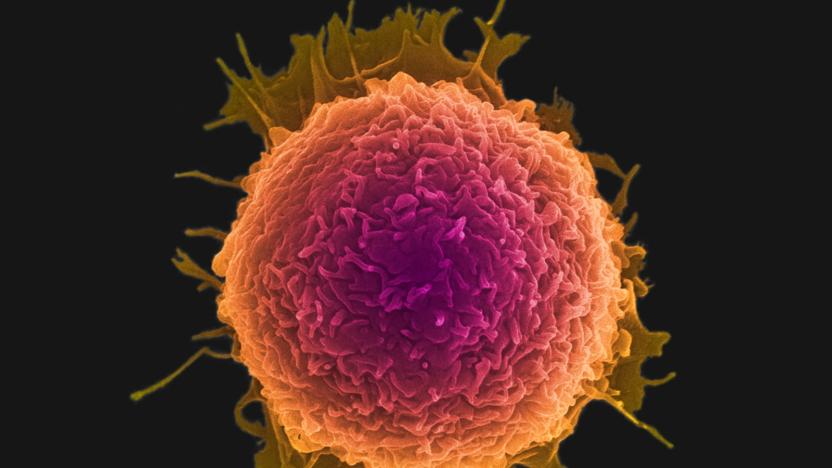
Nano-sized discs teach your body to fight cancer
In the future, getting customized cancer treatments might just be a matter of injecting virtually invisible discs into into your body. University of Michigan scientists have had early success testing 10nm "nanodiscs" that teach your body to kill cancer cells. Each disc is full of neoantigens, or tumor-specific mutations, that tell your immune system's T-cells to recognize those neoantigens and kill them. When you pair them up with immune checkpoint inhibitors (which boost the T-cells' responses), they can not only wipe out existing tumors, but prevent them from reemerging later.

Obama signs bill to fund 'Moonshot' research to cure cancer
Several months after President Obama laid out his plans to cure cancer in his last State of the Union address, he is signing legislation to do just that. Known as the 21st Century Cures Act, the bill will invest $1.8 billion in a Cancer Moonshot Task Force led by Vice President Joe Biden that aims to achieve a decade's worth of research in just five years. In so doing, the team hopes to ramp up science and technological progress to the point where a cure for cancer can be found. "We are bringing to reality the possibility of new breakthroughs to some of the biggest health challenges of our time," said Obama in a ceremony today. "We're tackling cancer, brain disease, substance abuse disorders and more, and none of this would have been possible without bipartisan cooperation from both houses of Congress." The overall bill plans $6.3 billion to not just tackle cancer research but also brain research, substance abuse prevention and to streamline drug and medical device approval.
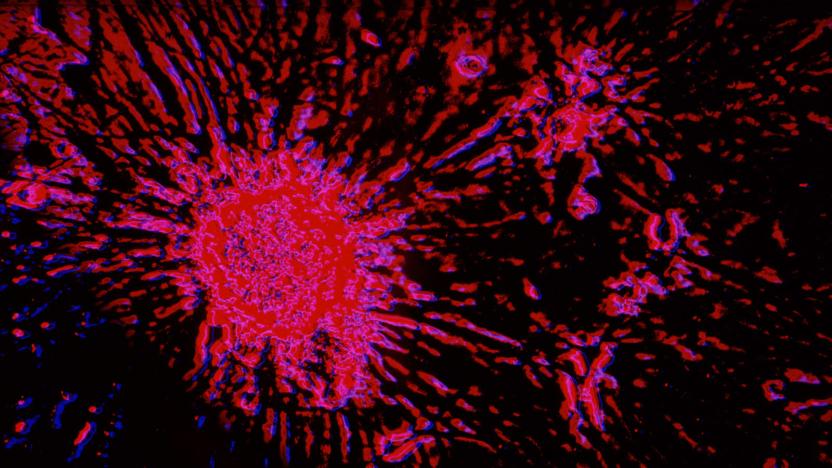
Cancer consumes fat to feed its metastatic march in mice
Stopping cancer in its tracks may be easier than we thought and possible without debilitating rounds of chemo and radiation therapies. All we have to do is take away its energy source. Researchers at the Institute for Research in Biomedicine at the Barcelona Institute of Science and Technology in Spain have discovered that a cancerous cell's metastasization -- the process through which the disease spreads throughout the body -- relies heavily on the presence of a single molecule which allows the cells to absorb lipid fats from their environment.

Sean Parker team-up will use algorithms for cancer prevention
Napster co-founder Sean Parker's Institute for Cancer Immunotherapy isn't wasting much time putting technology to work in treating disease. It's partnering with the Cancer Research Institute on predictive algorithms that can spot cancer neoantigens (substances in tumors that will produce an immune response) in DNA to use them as preventative treatments. Scientists from six organizations (including the Broad Institute and Caltech) will receive both cancerous and healthy gene sequences in the hopes that they'll identify those sequences recognizable by immune system T-cells.
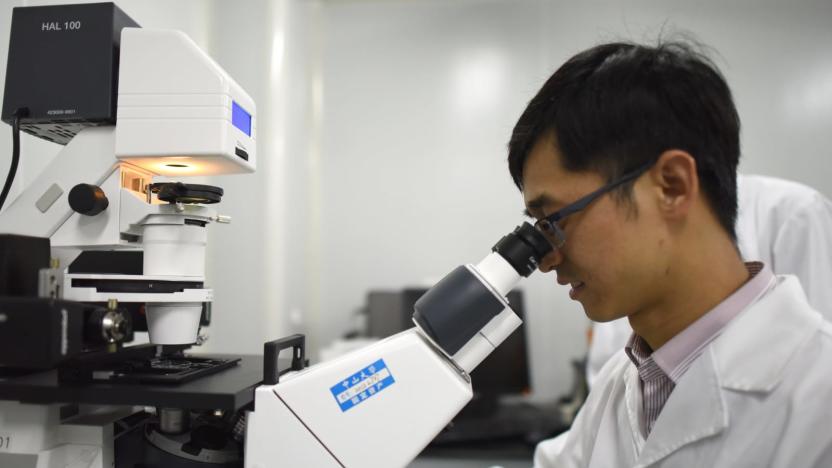
China completes first human trial with CRISPR-edited genes
As predicted, it happened: On October 28th, Chinese oncologists at Sichuan University were the first in the world to insert CRISPR-modified cells into a patient suffering from an aggressive form of lung cancer, according to Nature. The journal reports that this first round of treatment in a safety trial went well enough to warrant a second injection of the Cas9-edited cells, and that nine more people will undergo the treatments in the future. From there, the patients will be monitored for at least six months, if not longer, to "determine whether the injections are causing serious adverse effects."
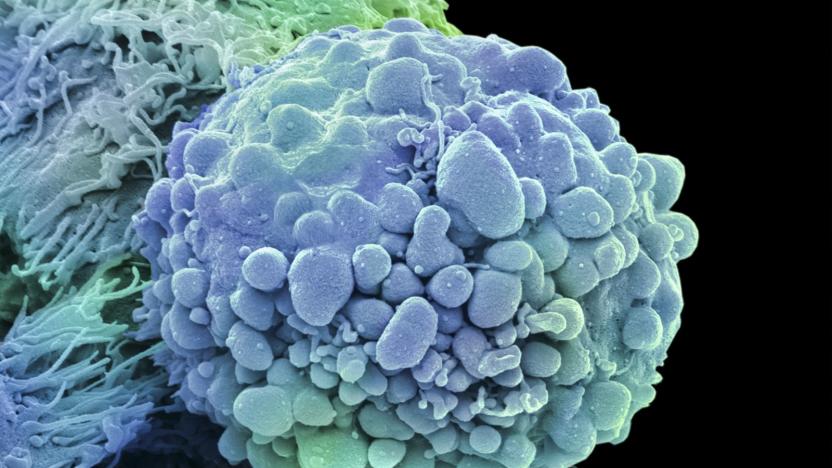
NVIDIA helps the US build an AI for cancer research
Microsoft isn't the only big-name tech company using AI to fight cancer. NVIDIA is partnering with the US Department of Energy and the National Cancer Institute to develop CANDLE (Cancer Distributed Learning Environment), an AI-based "common discovery platform" that aims for 10 times faster cancer research on modern supercomputers with graphics processors. The hardware promises to rapidly accelerate neural networks that can both spot crucial data and speed up simulations.

Smoking triggers hundreds of DNA mutations every year
You know that smoking is bad for your health. However, scientists have just shed additional light on how those toxic chemicals can wreck your body. A newly published study has determined that a pack-a-day smoker typically produces 333 DNA mutations per year, and only about half of them (150) are in the lungs. There are also mutations in the larynx (97), pharynx (39), mouth (23), bladder (18) and liver (6). Many of those mutations are harmless, but you're effectively rolling the dice with every year that you puff -- you're triggering a "cascade" of gene damage that could lead to cancer.

MIT makes neural nets show their work
Turns out, the inner workings of neural networks really aren't any easier to understand than those of the human brain. But thanks to research coming out of MIT's Computer Science and Artificial Intelligence Laboratory (CSAIL), that could soon change. They've devised a means of making these digital minds not just provide the correct answer, classification or prediction, but also explain the rationale behind its choice. And with this ability, researchers hope to bring a new weapon to bear in the fight against breast cancer.

Facebook censored a cartoon breast cancer awareness campaign
Facebook still has a thing or two to learn about what's considered acceptable in your timeline. The social network is catching flak after it briefly took down an ad for Cancerfonden's breast cancer awareness campaign that included cartoon representations of breasts -- and very abstract ones at that (they were just pink circles). The company has since restored the post and apologized, but only after Cancerfonden unsuccessfully tried using a 'safe' blurry image and posted an open letter that blasted Facebook's stance. You'd need square breasts to make Facebook happy, the organization argued.

Microsoft hopes AI will find better cancer treatments
Google isn't the only tech giant hoping that artificial intelligence can aid the fight against cancer. Microsoft has unveiled Project Hanover, an effort to use AI for both understanding and treating cancers. To begin with, the company is developing a system that would automatically process legions of biomedical papers, creating "genome-scale" databases that could predict which drug cocktails would be the most effective against a given cancer type. An ideal treatment wouldn't go unnoticed by doctors already swamped with work.

ICYMI: Dolphins speak in sentences and brand new bee species
try{document.getElementById("aol-cms-player-1").style.display="none";}catch(e){}Today on In Case You Missed It: Scientists in the Ukraine say they tracked bottlenose dolphins and found that they speak in up to five-word sentences and politely listen to each other before responding. Since dolphins are pretty much the coolest thing on the planet (Japanese horror show notwithstanding), we are excited about the latest dolphin intelligence findings.

Google hopes AI can improve head and neck cancer treatment
Google's DeepMind division launched its Health initiative earlier this year in an effort to use machine learning for medical purposes. Now, that initiative has launched a project that would speed up planning for neck and cancer radiotherapy treatments. DeepMind Health has joined forces with the the UK's National Health Service to analyze scans, all of which will be anonymized, from 700 former cancer patients at the University College London Hospital. See, it takes up to four hours for clinicians to painstakingly map out areas of the head and neck that need radiotherapy treatment. Those areas contain vital parts of the body, and clinicians need to make sure healthy cells remain untouched.

ICYMI: The US Government wants to limit big rig speeds
try{document.getElementById("aol-cms-player-1").style.display="none";}catch(e){}Today on In Case You Missed It: The National Highway Traffic Safety Administration is proposing to mechanically limit the speed of buses and semis over 26,000 pounds to under 68 miles per hour. The idea focuses on safety concerns but also would improve fuel efficiency.








